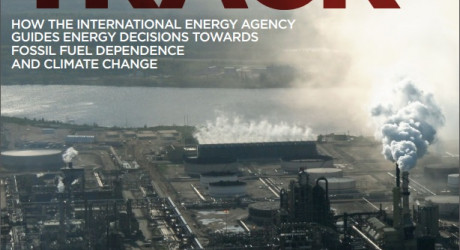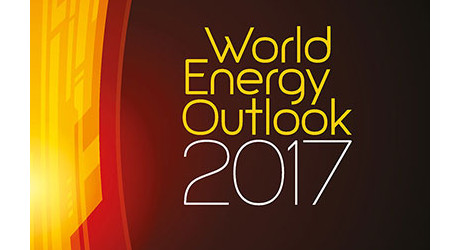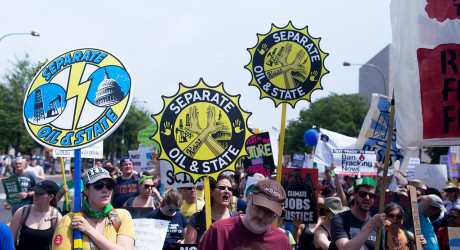GLOBAL INDUSTRY
The science says we need to keep fossil fuels in the ground to meet climate goals. We’re pushing back against industry spin saying otherwise.
OVERVIEW OF WORK
The oil and gas industry is on a public relations campaign to convince investors, financial regulators, and the public at large that they deserve continued support as “part of the solution” to the energy transition. Oil Change is working to challenge these narratives and provide analysis to the financial sector, movement allies, and other decision makers to support a shift away from fossil fuel finance. Further, we are working to reform international energy scenarios that currently guide investment decisions towards failure in meeting the Paris Agreement climate goals and, concurrently, are used by the oil and gas industry to justify dangerous expansion plans.
Following years of campaigning and pressure by Oil Change and others, in 2021, the International Energy Agency (IEA) released its first ever fully fledged energy scenario aligned with limiting global warming to 1.5ºC. Critically, the IEA concluded that: “There is no need for investment in new fossil fuel supply in our net zero pathway,” and, therefore, “there are no new oil and gas fields approved for development in our pathway.” We are using the IEA’s conclusion that 1.5ºC alignment means no new oil and gas fields to hold governments, companies, banks, and investors accountable to backing up ‘net zero’ commitments with an end to new oil and gas finance.
LATEST PROGRAM POSTS
Through its energy forecasts, the International Energy Agency (IEA) has been guiding governments towards energy decisions that are inconsistent with the goals of the Paris Climate Agreement, new research has found.
The IEA is steering the energy system towards catastrophic levels of warming. It continues to promote an energy future headed for around 3 degrees of warming, and acts as if the Paris Agreement never happened
There’s a battle taking place over how we think our energy future will unfold. And tomorrow, the organization that arguably holds a near monopoly over how most decision-makers perceive this future – the International Energy Agency (IEA) – will release its latest volley.
Acknowledging the obvious fact that our future cannot be fossil fueled begins the game that will only be truly won when our public policies, our laws, our governments, and our social norms fully incorporate this truth.
LATEST PROGRAM RESEARCH
This report finds that the EU’s demand for gas is set to decline significantly in line with climate targets, eliminating the need to expand supply from new fields or infrastructure. In the report the authors model how EU’s gas demand matches future supply in various forecasted scenarios.
Despite the urgent need to phase out fossil fuels, Japan is driving the expansion of liquified gas (LNG) and other fossil-based technologies like ammonia co-firing, worsening the climate crisis and harming communities and ecosystems.
New Oil Change International research shows that only 20 countries, led overwhelmingly by the United States, are responsible for nearly 90 percent of the carbon-dioxide (CO2) pollution threatened by new oil and gas fields and fracking wells planned between 2023 and 2050. If this oil and gas expansion is allowed to proceed, it would lock in climate chaos and an unlivable future.




